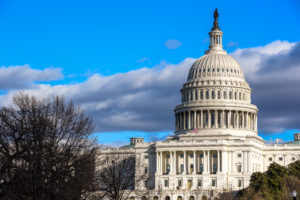
Why Midterm Elections Matter

Every two years in the United States of America we have federal, state, and local midterm elections. And every year we hear from politicians or administrative officials about why we should vote for them (or not vote for their opponent). The people elected during midterms become the leaders who manage our communities’ money, advocate for our well being, determine how our justice system works, shape our education systems, provide for our safety, dispose of our waste, maintain our environment, and more. Local and state elections are the most impactful on our day to day lives and yet few of us even know who our representatives, administrators, or public officials are.
Our democracy is at stake. Politicians, media outlets, public figures, scholars, researchers, activists, and others have all sounded the alarm. There are thousands of people across the country working in coordinated ways to undermine our system of elections, take control of our local governments, and advocate for political violence. Many of those who are part of this movement claim to be Christians. There are politicians running and influencers on social media who have convinced millions of Americans to place greater faith in lies and liars than in Christ Himself. They devote their energy toward upholding election lies and won’t trust anyone that doesn’t agree with them. They are unmoved by evidence, only valuing the echoes of affirmation in their social circles.They have created a religion of suspicion and their faith is distrust. Believers must stand in contrast with the false followers of Jesus who are really white Christian nationalists and make sure to vote for leaders who represent justice, equality, value, and care for all people regardless of their background. We cannot support or endorse hate, fear, and violence in the name of our Lord and call it faithfulness. We have learned we cannot be slaves to single issues at the federal level and neglect policies and positions at the local and state levels. We have to vote in midterm elections like this one, or our votes may become truly meaningless in the future. It is only pride that keeps us from seeing that if fascist governments can rise in other other countries that it can happen here if we do not participate.
As a voters we fall easily and deeply into tribalism, the identification and support of leaders we feel like are part of “our group.” Unfortunately when we do not have a president to vote for, most of us don’t vote at all. According to Pew Research Center 62% of people of voting age turned out in the 2020 elections, which was a record breaking number, mostly fueled by the bitter cultural wars in the Presidential race. But consider that means that 38% of people who could vote, did not. In midterm elections the numbers are usually under 50%. Literally the minority of people elect leaders who impact all of our lives. And yet when we don’t vote or care about who to vote fore beyond the top officials, we miss out on a critical piece of our democracy.

West side of the Capitol Building at Capitol Hill in Washington DC. Daily photos in the afternoon, good for late autumn, winter and early spring illustration
We are engaged and fervent whenever we elect the president, even though most of us will never meet them and rarely understand their impact on our day to day lives. A president is a symbolic leader for many of us, representing our collective hopes, aspirations, and ultimate accountability. But a president can make none of the changes we imagine for ourselves and our communities without the cooperation and support of the legislature. The laws passed by legislative bodies are ineffective when the courts don’t enforce them. Our entire government is built on cooperation between branches and accountability through voting, both of which are under greater threat than many of us could imagine. We must vote in midterm elections, otherwise our desires to see flourishing in our communities will remain only dreams. We need to know who our tax assessor is, our city council members, our sheriffs, our judges, our attorney generals, our state representatives, our county officials, our congresspeople, and our governors.
As people of faith we have an even greater responsibility to be informed voters and to vote. The United States of America is not the Kingdom of God. Jesus is the eternal King of the Kingdom and He is not up for election. No leader can serve as proxy for Jesus over our lives or our nation. We are not voting to put Jesus Christ in office. He is already reigning over everything by His own power. But we can absolutely elect leaders who agree with our Christian principles of justice, help for the poor, safety for children, value for all lives, and care for the environment. We must look to our faith to inform what matters in our personal politics, and value other people’s faith or lack of faith enough to care for them too. Jesus taught us to seek justice for those who are different from us. Jesus taught us to hold leaders accountable. Jesus taught us to pay special attention poor people, homeless people, those from different countries, those with disabilities, those with food insecurity, and young people. Jesus taught us to love our neighbors as we love ourselves. Which means we have to vote for leaders and policies that will positively impact not just us, but members of our community.
We should vote because we need more good in our government. And we should know our leaders from city hall to capitol hill because their decisions impact us at home, work, school, church, in the park, in the street, in the store, and everywhere else in this country.

 It’s no secret that the American public is less than pleased with the performance of its national political leaders. As Republicans and Democrats once again
It’s no secret that the American public is less than pleased with the performance of its national political leaders. As Republicans and Democrats once again 
 Common sense, which seems to be increasingly less common, will tell you that reputation is important. Even the reputation of non-breathing entities, like companies, can be broken by a loss of confidence or a reputation for dishonesty (Enron, anyone?). Common sense would also suggest that Congress and the president should begin listening very closely to the desires of those who voted for them.
Common sense, which seems to be increasingly less common, will tell you that reputation is important. Even the reputation of non-breathing entities, like companies, can be broken by a loss of confidence or a reputation for dishonesty (Enron, anyone?). Common sense would also suggest that Congress and the president should begin listening very closely to the desires of those who voted for them.